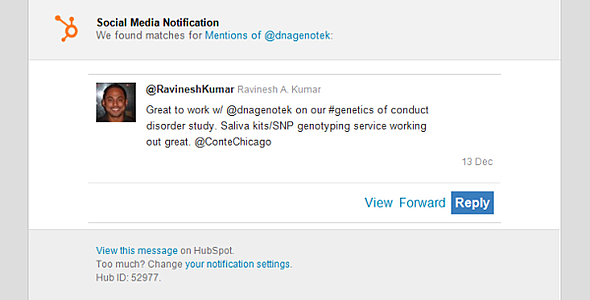2014-02-11
Over the past few months, we’ve been posting a series of blog articles on the topic of genetics and mental health. This month, we have an exciting story to share with you on the growing role of genetics in understanding a range of psychiatric disorders from an institution that is breaking new ground in this important research area.
The Conte Center for Computational Neuropsychiatric Genomics is a cross-disciplinary and multi-institutional effort based at The University of Chicago. The overarching goal of the Center is to identify the genetic and environmental factors that underlie psychiatric disorders, including autism spectrum disorder, schizophrenia, bipolar disorder, obsessive-compulsive disorder, major depression, anxiety disorder, and conduct disorder. The Conte Center team develops and applies new mathematical and computational strategies to infer causal relationships among genetic variation, environmental variables and psychiatric phenotypes. They achieve this by combining the statistical power of large genetic and pharmacogenomics datasets, text-mining strategies and review of electronic medical records.
As Director of Research at the Conte Center, Dr. Ravinesh Kumar, Ph.D., oversees and directs the research activities, education and training, and major scientific operations of the Conte Center. He also spearheads several research projects, including:
- characterization of the molecular genetic architecture of conduct disorder (CD), one of the most prevalent forms of child and adolescent psychopathology, and
- high-throughput DNA sequencing and combinatorial RNA interference (RNAi) screening in human neurons to elucidate the role of candidate genes for autism, schizophrenia and related neurodevelopmental phenotypes.
Dr. Kumar and collaborators Dr. Benjamin Lahey and Dr. Jean Decety of The University of Chicago are investigating the biological basis of conduct disorder (CD) using molecular genetics and functional magnetic resonance imaging (fMRI). Specifically, the team has selected genes that encode estrogen receptors, oxytocin receptor, GABA receptors, monoamine oxidase A, serotonin transporters, vasopressin receptors, catechol-O-methyltransferase, dopamine receptors, protein kinases and axon guidance receptors. The team will look for associations between genetic variants in these genes and brain-behavioral phenotypes relevant to child and adolescent psychopathology.
Conduct disorder (CD) is one of the most prevalent forms of childhood and adolescent psychopathology that is recognized in the Diagnostic and Statistical Manual of Disorders-V (DSM-V). CD presents as a persistent pattern of antisocial behavior that includes fighting, bullying, stealing, vandalism and lying for personal gain. The population prevalence is predicted to be around 5-10% and occurs in boys two to five times more often than girls. Identifying the risk and causative factors for CD is an important goal. Several lines of evidence suggest a strong genetic basis to CD. Twin studies demonstrate heritability estimates ranging from 40-70%. Genome-wide association studies (GWAS) have identified a handful of genetic markers that are significantly associated with CD symptomatology, such as aggression, impulsive behaviour, alcohol dependence and related childhood disorders such as attention-deficit hyperactivity disorder (ADHD). Furthermore, candidate gene studies have identified several single nucleotide polymorphisms (SNPs) and variable number tandem repeats (VNTRs) that are associated with CD-related phenotypes.
Dr. Kumar’s current research is a pilot study in which he tests the hypothesis that genetic variation in genes shown to be associated with CD or CD symptomatology will be significantly associated in the cohort of children with CD. For this study, he used Oragene to collect DNA from saliva samples. The study participants were children aged 9-11, which made Oragene’s easy and non-invasive collection method particularly appealing. Once the required samples were collected, Dr. Kumar’s next step was to arrange for the analysis of the samples.

The genotyping results from this pilot replication study are undergoing statistical analyses to determine significance of association between CD phenotypes and candidate alleles. We will be sure to keep you posted on Dr. Kumar’s progress with this study.
For more information on how we can help you plan and execute your next project, please email us at info@dnagenotek.com


